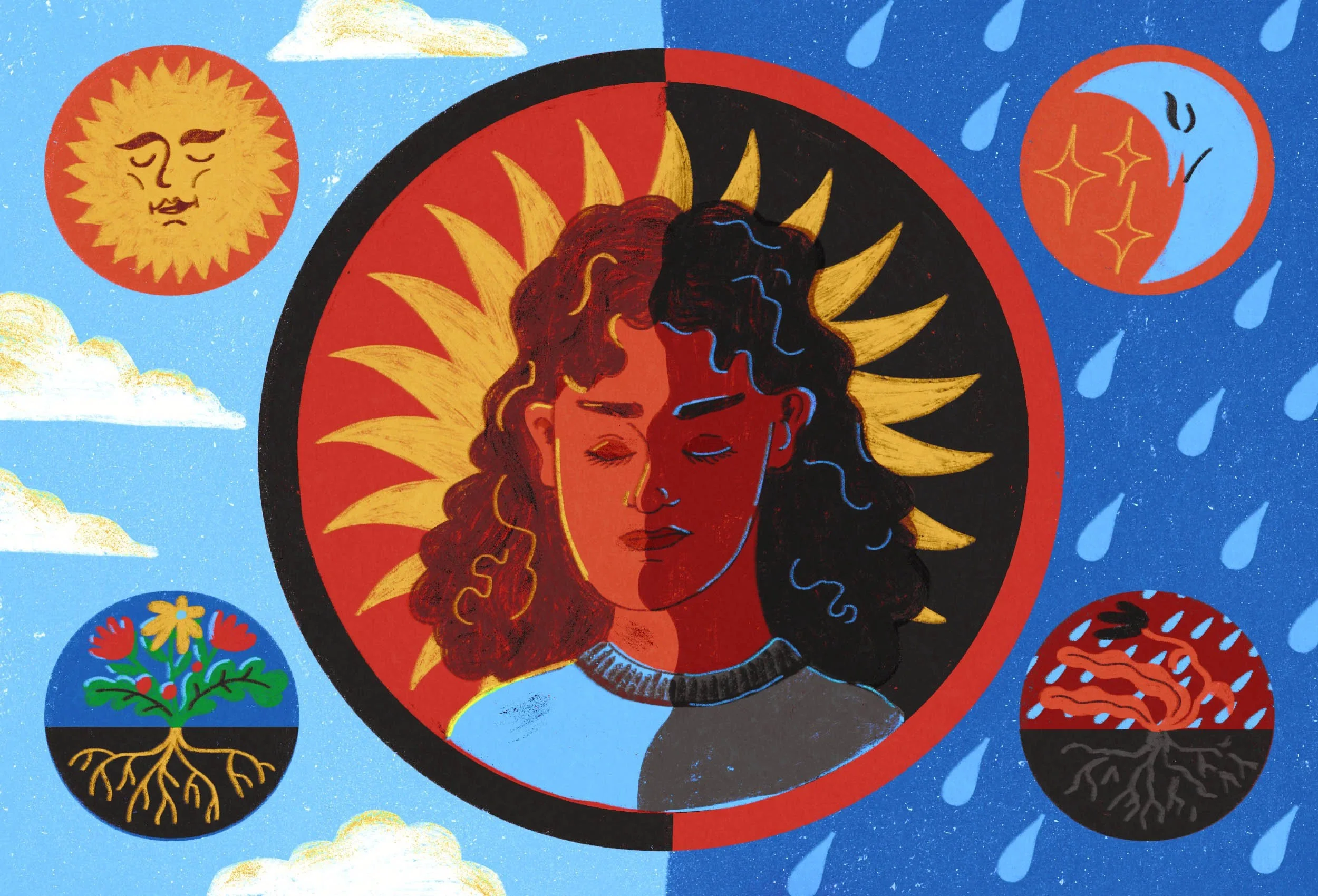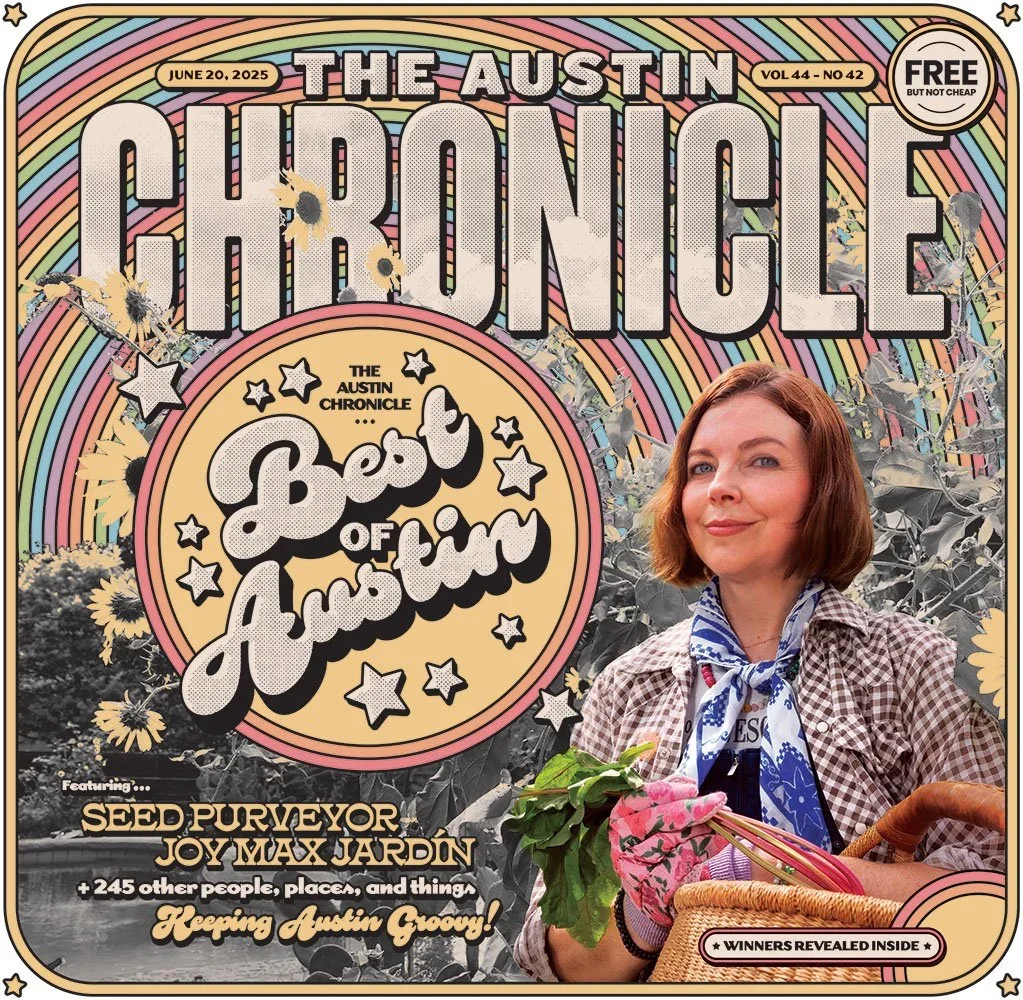The goodness of greenery: gardening for mood and health
Illustration by Sonny Ross
The satisfaction that comes with working in a garden is difficult to describe. It's a multisensory experience; it taps into our deepest human desires to create, sustain ourselves, and connect to the earth. It’s no wonder then that gardening can have a profoundly positive effect on one's mental and physical health. Up until recently, the benefits have remained purely anecdotal. People love gardening, just because they love it. But in recent years, researchers have begun to study the tangible effects of gardening on the brain and on society at large.
Plants as Therapy
Given an increase in gardening as an activity during Covid, social science researchers have been curious to know the true effects of what can be called horticultural therapy (using gardening as a therapeutic practice.) A pilot study published in PLOS One provides further evidence of gardening's therapeutic benefits. The research, which compared group-based indoor gardening to art activities among healthy women, found that both activities led to improvements in mood, depression symptoms, and perceived stress. Notably, gardening showed specific benefits in reducing anxiety. This study adds to the growing body of scientific literature supporting the positive impact of gardening on mental health and well-being.
For instance, a recent meta-analysis published in the NCBI examined the effects of gardening on health outcomes. The researchers found that gardening had a significant positive impact on a wide range of measures, including reduced depression and anxiety symptoms, stress, mood disturbance, as well as increased quality of life, sense of community, physical activity levels, and cognitive function. Another study by Texas A&M AgriLife experts outlined other psychological benefits of plants and gardening, including attention deficit recovery, decreased depression, enhanced memory retention, improved happiness and life satisfaction, mitigation of PTSD, increased creativity and productivity, reduced effects of dementia, and enhanced self-esteem.
Writer and YouTuber Alexandra Campbell of @themiddlesizegarden can vouch for these benefits. With her platform, she teaches her audience how to maximize the use of smaller spaces to create beautiful and diverse gardens. The relationships that she’s formed since launching her channel have both taken place on and offline.. “Gardening is hugely good for community and social connections. I’ve made many good friends here through a mutual love of gardens, going to visit gardens or going to talks or events around gardening.” She mentioned other initiatives like open garden days and garden markets, which allow communities to come together over a shared passion for horticulture.
Beyond this, Campbell has praised gardening for helping her recover from a physical injury. After a back injury, she doubted her ability to continue the physical activity that gardening demands. Upon encouragement from a friend, she got back out into the garden. “Breaking gardening up into lighter, easier tasks was hugely helpful and made me realize that you can often achieve much more than you think if you break a difficult or demanding task down into do-able chunks.”
Reconnecting with Nature
Professor Masashi Soga at the University of Tokyo researches how urbanization has affected individuals' interactions with nature, or lack thereof. After beginning his career studying butterfly conservation, he began researching the effect of nature on human well-being and biodiversity in urban environments. Professor Soga has become a leading voice in the field of applied ecology, with a focus on what he terms the "extinction of experience" - the ongoing, widespread loss of human-nature interactions
He emphasizes that "if we aim to restore human-nature interactions, it is not enough to merely restore nature itself; we also need societal approaches to reduce people's psychological distance from nature." Gardening, no matter what the scale, can help bridge this gap.
The evolutionary basis is one of the many explanations for why humans are so benefitted by working with plants. Professor Charles Guy, a researcher in the department of Environmental Horticulture at the University of Florida, pointed out this deep-seated psychological basis of gardening’s benefits: “We have lived with and needed and depended on plants for most of our needs and because of this, we are wired in our genome and brains to live in a world rich in plants.”
Get Out and Grow
For those new to gardening, it may seem difficult to figure out where to start. Cities are not always the most friendly for getting in touch with nature, as Professor Soga points out. “ Urban areas are typically designed to fulfill human economic and social activities, making it difficult to maintain natural environments, especially large green spaces.“ Luckily though, there are plenty of resources available, including local gardening clubs, and community gardens, and of course, youtubers like @themiddlesizegarden. Many cities also offer gardening workshops or classes for beginners. A curious mindset and willingness to learn will go a long way.
As Alexandra Campbell puts it: “I’d advise beginners not to worry about getting everything right. Most plants just want to grow and will forgive mistakes. Don’t feel that there’s a strict series of rules you have to follow or that there’s a ‘right’ way or a ‘wrong’ way to garden. It’s much more about finding your own style.”
Whether you have access to a large backyard or just a small windowsill, incorporating some greenery into your life can yield significant benefits. From improving mental health to fostering community, gardening offers a unique blend of physical activity, creativity, and connection to nature that can enhance overall well-being.
IN THE COMMUNITY:Medicinal Media’s own Jennymarie Jemison shares her gardening goodness at Joy Max Jardin
your contribution is tax-deductible
KEEP EXPLORING:

